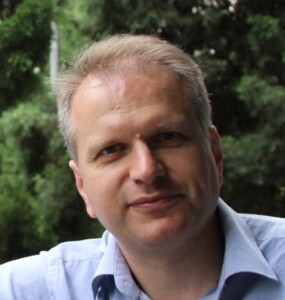As we listen to stories about reconciliation, cohabitation, stabilization, what we are actually doing is numbing the nerve for rebellion, making peace with and accepting crumbs left to us by the winners of transition.

Srdjan Peric
An individual or a collective who do not learn from experience are left to the mercy of raging repetition. The inertia of forgetting numbs us to the point of not recognising the patterns of events that have shaped us with a rough hand. Poisoned by hatred, in the whirlpool of events that we did not understand, despised for the temptations that we did not resist, we live in – let’s be specific – the remnants of our existences.
As we listen to stories about reconciliation, cohabitation, stabilization, what we are actually doing is numbing the nerve for rebellion, making peace with and accepting crumbs left to us by the winners of transition. It remains uncertain how long it will take before we understand the most devastating of all the divisions is the one that divides life into loan instalments.
Stunning stories about the uniqueness of the nation serve a purpose: while we slowly break down as a community, the class formation on the other side of the table unhinderedly mutates and continues to survive. Just when an oligarchy becomes transparent, a new one is created through symbiosis or unification with the old – it gives it a new life. Because if it weren’t for that ‘fresh blood’, the previous one would gradually disappear. This framework for mimicked class conflict has led us not to see what is obvious: life is passing us by.
Ako ste sumnjičavi da se iza ovih redova krije pesimizam, evo brojki: prosječna plata u Crnoj Gori je u januaru bila 530 eura, tačno deset godina ranije 518. U istom intervalu minimalna potrošačka korpa je smanjena sa 754 eura sa početka 2011, na 643 na početku ove godine. Kamata na stambene kredite je sa početka tog perioda znala biti oko 9%, da bi sada došla do nivoa nešto ispod 5%. Dok su cijene kvadrata u zavisnosti od lokacije i trenutka na tržištu imale varijacije i značajno preko 40%. Tako bi za stan od 60 m2 u Podgorici nekada rata kredita na 25 godina iznosila oko 500 eura. Sada sa povećanom cijenom kvadrata, a smanjenom kamatnom stopom, za isti period može biti između 480 i 490. Kamata gotovo duplo manja, prosječna zarada približna – a rata skoro ista. Nelogično? Ne, savršeno logično, baždareni smo tačno koliko možemo da iznesemo. Notirajmo ovdje: u bogatim zemljama EU ta kamata je i iznačajno ispod 2%, a zarade i preko 6 puta veće. I dok gutamo nacionalne priče a jedemo sve slabiju hranu, manje vodimo računa o zdravlju, više izlažemo stresu, grabimo ka tački trijumfa besmisla – kada će nam od ovog zbira kosti i mesa ostati ljuštura iz koje zveči praznina.
If you suspect pessimism is the main driver of this piece, here are some stats and figures: the average salary in Montenegro this January was 530 euros, and exactly ten years earlier it was 518. In the same interval, the minimum expenditure basket was reduced from 754 euros in the beginning of 2011, to 643 at earlier this year. From the beginning of that time frame, the interest rate on housing loans used to be around 9%, and now it has gone down to slightly below 5%. All the while, property prices per square meter, depending on the location and market fluctuations, had variations up to and significantly over 40%. And so, a 25-year loan instalment for a 60m2 apartment in Podgorica would have been around 500 euros. Now, with an increased price per square meter, and a reduced interest rate, the instalments can vary between 480 and 490 euros. The interest is almost twice as low, the average salary is approximately the same and the instalment is almost the same. Doesn’t seem to make sense? No, it makes perfect sense, we are being given exactly as much as we can handle. Let’s take a moment to note that: in rich EU countries, that same interest rate is significantly below 2%, and earnings are over 6 times higher. And while we swallow national stories and eat progressively worsening foods, we pay less attention to health, we are more exposed to stress, we are racing towards the point of triumph of nonsense – when our bones and flesh we will be left as nothing but a vacant shell.
The stories about solutions, social housing, the formation of housing funds are in vain, our drunkenness is too far from the point of sobriety.
We have not lost the ability to solve problems, we have lost the ability to recognise them. After decades of persecution of freedom of opinion and speech, the pressure of social media arguments, attacks on basic common sense in the public sphere, the accumulation of conspiracy theories – we have become neglected. And are on the right track to backwardness. We have dropped healing remedies that support reason – education and re-examination. We can’t do better, although the opportunities we have in front of us have never been greater. We have become prisoners who have the key to the lock in their pocket, but we neither feel nor know that. The key opens the door to disagreement and rebellion. Because we can only be different if we really want to.
Until then, we ought to pay the loan instalments.
Srdjan Peric, civil activist, one of the founders of NGO KOD in Podgorica



Leave A Comment